|
Tony Amendola On His Role As Geppetto/Marco In Once Upon a Time And His Journey Towards Artistic Excellence - by Diane J. Reed / @DianeJReed I have to admit I was a bit daunted about the prospect of interviewing Tony Amendola because it’s nearly impossible (unless you live under a rock) to not have seen him in a hit television show or film in recent times! His roles are so diverse and marked by excellence, regardless of whether he’s playing an intergalactic warrior, seedy sociopath, or distinguished European gentleman. Nevertheless, this unassuming and humble star quickly allayed my fears and granted us an extraordinary look into his early days as an actor and where he feels his artistic journey is leading him now. We’re so grateful that this master of the craft made time for us in an exclusive phone interview for Once Upon a Fan. Diane: Hi Tony! I’d like to say first off that we’re really quite honored you granted us this interview. So many of the fans have such a love for you as an actor—and not just because of Geppetto and Marco. People have seen you in a wide variety of roles! Yet I was shocked to learn that you were actually born and raised in New Haven, Connecticut. Tony: Why were you shocked? Diane: I thought for certain you came from Sicily or the Old Country! You so convincingly play certain roles with an Old World feel. Tony: Well, it is part of my experience. I grew up in an area that was like a little enclave within the city where there was a local grocer and meat market and appliance store all within walking distance. You didn’t have to leave a six-block radius because people gravitated to this central area, but now all that’s gone. Diane: Was there a lot of ethnic diversity in your neighborhood as well? Tony: Yale is close by—over the hill—and there were a lot of what we now call Yuppies there at the time. But in this smaller area where I lived it was predominantly Italian, and then eight blocks over was African-American, and then further on was Irish and beyond that Puerto Rican. We’ve gotten more homogenous as a society now, but back then it was quite diverse. Diane: When I read that you were born and raised in New Haven, I just naturally thought of a rather elite or patrician kind of culture. So growing up, did you gain more of a familiarity with how new immigrants move and speak that you could bring to your work as an actor? Tony: Oh absolutely. I’m first-generation American in my family, so ties to the older culture are very important to me. And in New Haven at the time there was a real mixture. My high school was probably fifty percent African American and thirty percent Italian and then twenty percent Jewish and Irish. It was a real melting pot. That was in the late sixties and seventies during a very charged time, politically. Diane: You are fluent in both Spanish and Italian. Were your parents from these countries? Tony: My mother was from Italy—a town called Amalfi. The primary choice of a place to immigrate to back then was always in North America: Canada or the United States. But there were quotas, so I have other relatives who had to go to Argentina. There was a diaspora of people who went to Central America and South America, but my grandfather happened to come here right after World War II. Diane: Oh my gosh—was there a sadness at being split up like that? Tony: Terribly so. And it was so expensive to call or to make contact back then. When people left, they really left. Back then it was quite difficult, but in the immigrant experience people just bucked up and did it. They knew there was a better life that they wanted for their families. Diane: So did your family encourage art or drama? How did your journey begin as an actor? Usually if you’re a first-generation American, they tend to want you to do something “practical.” Tony: Exactly. I was the first one to really go to college, so the expectation was to become a doctor or lawyer or engineer—something stable. So when I decided to become an actor, they were understanding and tried to persuade me otherwise. And then they basically made me be responsible for myself. So I had to go out and get scholarships and work to get my college education. But I was still free to pursue my dream. I just was very lucky—there was no one involved in the arts in my family at all. But growing up in New Haven, there were wonderful opportunities when I got involved in theater in college. Diane: Was that when you made the choice to consider theater, or were you already interested in drama before that as a child? Because in the sixties there’s not much on television after school except for Bonanza and Gunsmoke. It’s not like they had reruns of Masterpiece Theater airing in the afternoons. So what age were you when this spark occurred? Tony: It happened by accident in college. I just wandered into an audition and my motive initially was very social. It was all about participating in a community and being around women! Only later did I realize there was something interesting going on there, and that’s when it took effect. But to be honest, a lot of it was stupid luck. Diane: That’s just fascinating because it’s such a perfect profession for you! Had you gone to a lot of movies as a kid? Tony: I went to a state teacher’s college in Connecticut that had like twenty women for each man, and they needed men in their drama department. They needed male bodies! Consequently, when I was in college, I did a lot of plays. It filled my life at a time when I didn’t know what I wanted to do or where my place was in the world. Diane: Well for someone who fell into acting, your theater chops are astounding. You’ve done so much Shakespeare—Othello, Iago, Petrucchio and The Taming of the Shrew to name just a few plays. So I’m kind of marveling at this serendipitous career choice. Once you decided on your career path, you certainly dove in head first! Tony: Well, growing up in New Haven I was lucky that there were two really important theater companies: Long Wharf and Yale Repertory. So I was exposed to wonderful theater within walking distance. I’d see Christopher Walken and Meryl Streep—they were all young actors at the time. But the dream for me was just to work. Most people don’t understand that there’s a middle class of actors. They only understand that there are stars or the starving—they have no notion of the in between. So my goal was to be able to support myself as an actor. I mean, in our union the employment rate is probably 85-90%. So I did exclusively theater for fourteen years. I also did the odd television work from time to time. When I was in San Francisco, California I did a series called Partners in Crime while I was working at Berkeley Repertory Theater as well. It wasn’t until the late eighties to early nineties that I started dipping my toes into the Los Angeles pool. That time in San Francisco was just sensational for me. My first professional job was in Ashland for the Oregon Shakespeare Festival in 1978, and from there I proceeded to the Seattle Repertory in 1980, and then from 1980 to 1990 I was in Berkeley, California for the Berkeley Repertory Theater. Diane: That’s pretty hard core theater, Tony! I would imagine that a lot of TV actors don’t have quite the theater experience that you have. See Tony’s work in Julia Cho’s “The Language Archive” at South Coast Repertory here: Language Archive Tony: Oh, you’d be surprised! A lot of them do, particularly within genre work. Name an actor who was on Star Trek and odds are that they’ve done Shakespeare and had good theater training. When you belong to a theater company you are “seasonally” employed, but back in the eighties you could still get a lot of work. That world has really shrunk now. Diane: So I heard that you’ve known Raphael Sbarge for something like 25 years. Was he in one of the theater companies with you? Tony: Yeah, we were both in the Antaeus Company in Los Angeles. They’re a company of actors who got their start in theater, and although they lived in Los Angeles, they still wanted to remain connected to theater. Antaeus was a Greek earth spirit who appeared scrawny, yet who got stronger every time Hercules pinned him to the ground. The name was taken from the fact that although we work in film and television, our initial empowerment came from the theater, so we try to stay involved in it. Like right now I’m doing a production of Mrs. Warren’s Profession in Los Angeles. So that’s how I know Raphael. Diane: Is theater your first love, or are TV and theater just apples and oranges? Tony: They are apples and oranges—but I love it all. I just love being able to work, and I love the variety. There’s a certain arrogance that exists in theater towards television—you know, it’s over so quickly and you don’t get to go as deeply into your character. And then there’s an arrogance TV has towards theater—it doesn’t pay well enough and the hours are so long. For me, I like them both. But I have to say that the wonderful thing about theater is that it can take you back 2,000 years. Film acting can only take you back so far. I love the fact that in theater, an actor 2,000 years ago could be as nervous as you are right now! Yet that actor still has the desire to share something that moves him or her. The connection to history and emotion in theater is wonderful. Diane: Well your body of work has to be one of the most varied of any actor I’ve talked with. From the distinguished Dr. Sloper in a theater production of Henry James’ The Heiress to the incredibly EVIL Santos Jimenez in the TV hit Dexter! Your scenes in Dexter floored me—I couldn’t even believe you were the same man! Is that the most grisly role you’ve ever played? See Tony’s work in Dexter here: Dexter (Not for the Screamish) Tony: Yes, it was pretty intense work. It’s a great series and I loved working with Michael C. Hall. You had to be in a pretty strange place to inhabit that world. And then the next thing you know, you’ve been saran wrapped to a table. Diane: With a chainsaw going! Tony: Yes! Quite a blood bath. But that’s what’s interesting about the work is that you get to live in different worlds. And I also love to travel, too. Because of my work in film and television, I’ve gotten to travel to Bulgaria, Mexico, Canada and many other places. It’s not that I enjoy being a tourist—that’s a whole other experience where you’re in a place for two weeks and you end up saying to yourself, “Okay, I must enjoy myself NOW.” But if travel is part of your work, the nice thing is that you’re able to get a different view of a country and a society because you’re in contact with the locals who can guide you through the best and worst a place has to offer. And you aren’t forced to enjoy yourself! Diane: I hadn’t thought of traveling being a pressure before! You have a rather large fanbase because of your work in Stargate, Dexter, and the two Zorro films. On Stargate you played Bra’tac—did you have to travel for that role as well? See Tony in The Mask of Zorro trailer here: Mask of Zorro. Tony: It’s interesting you should say that. Stargate was filmed in Vancouver just like Once Upon a Time, and I’ll tell you a funny story. It was filmed at Bridge Studios where Once Upon a Time is currently filmed, and here’s the even weirder thing—when I got hired, they picked me up at the airport and took me to a fitting with Eduardo Castro and they told me we were going to be shooting at a bridge. So we pull up to the exact same soundstage at the bridge that Stargate was on. And they even occupied the same business offices. It was so weird! I was on Stargate for a number of years, so to be back and see different people at the same office desks was very strange! See Tony’s work in Stargate here: Stargate Diane: Wow, that’s almost dreamlike, as if it were fated to happen. Tony: Yet you have the luxury of knowing where the bathrooms are without having to ask! Diane: That’s true! Well I heard for your audition for Stargate that you weren’t told that you’d be a recurring character— they just liked you so much! Tell us about your audition for Once Upon a Time. What I heard is that the casting director had to use different material for you because they hadn’t written all of Geppetto’s lines yet. Is that true? Tony: Yes, this happens sometimes, and it’s not that uncommon. I was an important character in the pilot, but there wasn’t really that much text. So what they did was give me different material and they said “Do it the way you think Geppetto would.” As I recall, they gave me a scene from the film Rushmore where there’s interaction between a father and a son. That’s what I auditioned with, which is rather wise when you think about it. How the character feels about his son and how he handles it is easily transferred to Geppetto. Diane: So they gave you a fatherly character, but it wasn’t Gepetto since the scenes weren’t written yet? How many auditions did you do for this role. Tony: Actually, this role was only one! It was so bizarre. Sometimes you do three or four, but this was just one. Same thing with Stargate. The reason it was only one was because I was in Los Angeles and the rest of the cast were in Vancouver preparing for the pilot. So they then put your work on tape and send it up there. I met with the casting director Veronica Collins Rooney— a terrific lady. Diane: When you first read this script, you obviously realized it’s a show about fairy tales. Did the script seem kind of “out there”? What was your first impression of this fairy tale TV show? Tony: Well, I got a call from my agent saying “I have an audition for you for a pilot and it deals with classic fairy tales. You’re going to be reading for the character of Geppetto who has two realities.” And I thought to myself, “Well I don’t know what this is all about, but I’m game.” And then I remember going home and reading the pilot and going “Whoa, this is really good! This is very interesting.” And I called my agent and said, “I really like this.” So afterwards I went in and got it. It was the same season that Grimm was coming out. While we were filming the pilot, people were warning me saying, “Well you know Grimm is on too, and they both can’t survive.” And I recall thinking to myself, “These people obviously haven’t read the script!” These two shows are completely different with totally different audiences. And I like Grimm, but it’s funny—things go in cycles. I ended up doing an episode of Angel, which was fun and filled with prosthetics and everything, at the exact same time that they were doing Buffy, which clearly became very popular. And about five years before that there was a series called Kindred that was just a little bit before its time. But it dealt with similar things, although it was a lot darker. It’s always intriguing to me—where and when a pilot hits an audience is crucial. I remember growing up with the Disney show on Sunday nights. I loved that—I remember watching the Swamp Fox and all these things that just mesmerized me as a boy. So to all of a sudden be on a fairy tale show that airs on Sunday nights seemed perfect to me. Diane: Do you have any inkling why the fairy tale shows are so popular right now? It’s huge in the movies, too. I sort of wonder if it’s due to the recession—fairy tales give you hope but they’re also honest about darkness and despair. I have a hunch that might be cathartic for some people. Tony: I think shows like Once Upon a Time deal with very basic issues. And the common factor in Once Upon a Time is that everyone has lost something. Every single character is trying to cope with a loss—from Emma to Regina to Geppetto. We’re all desperate to protect what we had. Diane: No one has said that to me before! But you’re exactly right—that’s the true common denominator and why we empathize with everyone so much. What a great insight. Tony: And our characters are all desperate to regain something or protect it from further harm. You know, fairy tales are lessons—they were created to be instructive in their own way. And the wonderful thing I admire about Adam and Eddy and what they’ve done with the series is how they’ve taken the prequel and sequel elements of a fairy tale, embellished them, and set the character free to find their course. With my character Geppetto and his desperation to protect his boy—anyone can relate to that. Diane: Even Snow says that to you after she slaps you! She says, “I would have done it too to protect my child.” That slap looked so real—was it? Did she actually make contact or was that all smoke and mirrors? See Tony’s scene in Once Upon a Time here: Snow Slaps Gepetto Tony: Well I owe her one! We had to create the illusion, so we did it. It was a real slap. And what I loved about the last episode was that I got to work with the two Alpha ladies of the show, Jennifer and Ginnifer. It was fun being with them. Previously, I had always been with Eion and Jacob and Ruby. So it was really fun to be tromping through the forest with Snow and Emma. Diane: Are those actresses as lovely as they appear? Tony: I have to say they really are—I always feel welcome when I go up there. The thing you have to realize is that they’re working long, long hours. And the whole set is easy going and fun. That’s the good thing about having a character who comes back for episodes—you already know everyone and how everything works. Sometimes in this business people can have a bad day, but I’ve never seen it there. It’s a big show and they tend to shoot eight days and then two days of green screen work. Diane: They must put in a ton of hours. It’s so cinematic and beautifully done, yet they’re putting out these shows each week! They have to get completely exhausted. Tony: You’re absolutely right. But everyone’s grateful for it. Diane: When I first saw your character in Season 1 where Pinocchio is dying and the Blue Fairy comes and brings him back to life, of course I become a total puddle at that point! I never imagined that we would ever see something that gut wrenching for you again, and there it was in the second season! That scene where you’re hugging August and he’s dying —here you are cradling your boy again and I’m a total puddle! What did you think of the script when you saw that your character was coming full circle? And that August became a little boy again? Did they tell you that? Tony: They didn’t tell me until I actually read the script, although they hinted a couple of times. But they don’t want to spoil your initial reactions so they just hint. Then when I read the script and saw it, I was as moved by it as you were. My only reservation was, “Oh my god, I so loved that first episode. How do I get to the same place again?” Diane: Yes!! Tony: How can I get there again and yet make it different enough? Ralph Hemecker was the director on that, and he’s a terrific director with actors. He knows when to give you a little nudge forward and when to pull you back. And he does something that’s really nice, when there’s time—you work and work and he gets what he needs from you as a director. And then he says to you, “Now you do a take for yourself.”
Diane: Oh really? What a fantastic director!! Tony: That’s a really lovely thing for a director to do. As an actor, you have to live within this box, this frame, and sometimes that can make you feel constrained. But he gives you the chance to potentially surprise yourself and the director, which is a wonderful thing. So I had a great time. Diane: So who directed the episode with the first Pinocchio death scene? Tony: Gwyneth Horder-Payton. That was a huge episode—we worked on the beach, in water tanks, in the snow, everything. At the same time, I was working on a show called Continuum. I was working on two things at once! But what a wonderful period that was. Diane: Well if I had a sobbing meter for the show, I have to say I cried the most when Pinocchio died the first time in Season 1. Your performance there was so brilliant and heart wrenching — just unbelievable! Back then, we didn’t know the Blue Fairy could intervene. But in the second season we have that background, so at least we could hope! The second scene I cried at the most was in Season 1 when Charming recognizes Mary Margaret as Snow on the sidewalk in Storybrooke. Those are the only two times in the entire series that I absolutely cried my eyes out. That’s how far up your scene is on the sobbing meter! Watch Tony’s scene from Once Upon A Time here: The Stranger Tony: Well thank you very much. I loved that scene with Charming and Snow too, and the music was so haunting and beautiful. Diane: So your character has come full circle now, and August has turned back into a child. Where do you think your character can go from here. Tony: Well, it’s funny—I’m just thrilled to still be alive! [Laughs] And to go back to the relationship with the boy is sort of interesting. The only thing I joke about in terms of my character is that I’d love to see him get together with Granny! Diane: Oh my god— we’ve been taking bets on that!! That’s our biggest piece of gossip lately - that Geppetto and Granny should get together! Tony: Well if you look at Granny’s place she has Italian sodas and an espresso machine, and occasionally there’s biscotti on the counter. So I’m thinking Geppetto spends a lot of time in there. Diane: Well I think it’s fate now! That would be great. So do you think we’ll see August again? Characters do come back - like Sheriff Graham. Tony: Oh yeah, I think we’ll see him again, at the very least in flashbacks. He’s a terrific actor. My other favorite scene that I really enjoyed in the show is in the first season where I’m working on the clock, and I don’t know who August is, but he knows who I am. Such a wonderful scene. We don’t know at this point how our characters will develop in the future, but I’m sure it will be great. I love working with Lana and Beverly and Ginnifer and Josh. And I actually had a little bit of contact with Robert Carlyle, who was terrific. He’s one of the highlights on the show, without question. Diane: So my last question for you, considering your wonderful body of work, is this: do you still have any dream directors you'd like to work with, or actors or roles? Tony: The only desire I really have is for work to still be coming in for me. It’s a strange profession and there have been a couple of points where I said to myself, “You know, it’s been a lovely life, but things are starting to wind down”—and then all of a sudden things will pick up again. I’ve been able to do this for over 35 years in film and television. So I just feel very fortunate to continue to be able to work on projects that interest me. I mean, of course, who wouldn’t want to work with Ang Lee? Who wouldn’t want to work with Tarantino? But on the other hand, I’ve had the chance to work with wonderful people—John Sayles, Martin Campbell, and all of the people on Stargate, and then Ralph Hemecker, Adam Horowitz and Eddy Kitsis of Once Upon a Time. So I haven’t had a bad run! Diane: Yes, you’ve done fabulously well! And thank you so much for taking time out to talk with us today—all of your fans will appreciate it and they’ll be thrilled to read this interview because so many people have been admiring your work for a long time. Tony: Thank you, and please tell them that I appreciate it!
0 Comments
Leave a Reply. |
Archives
May 2017
Cast/Crew/Fan Interviews
All
|
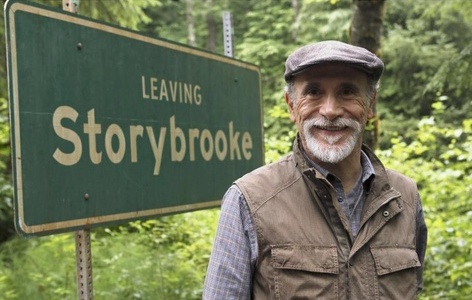
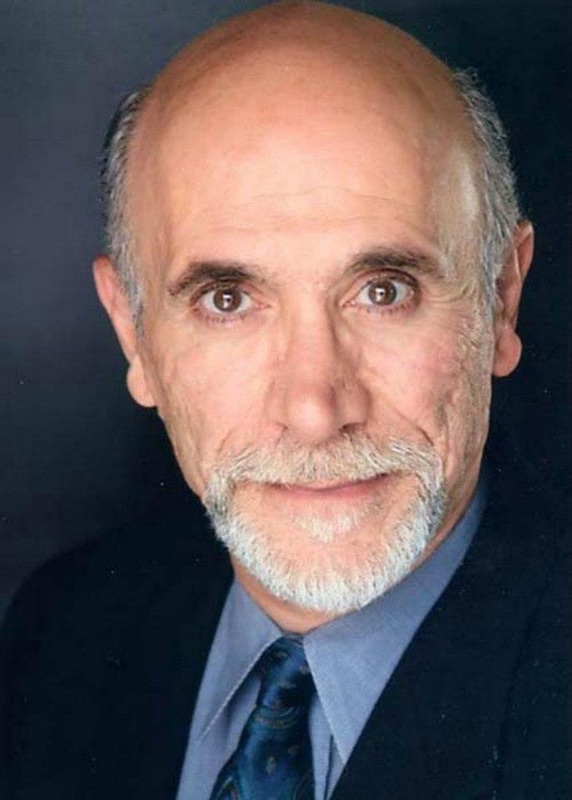
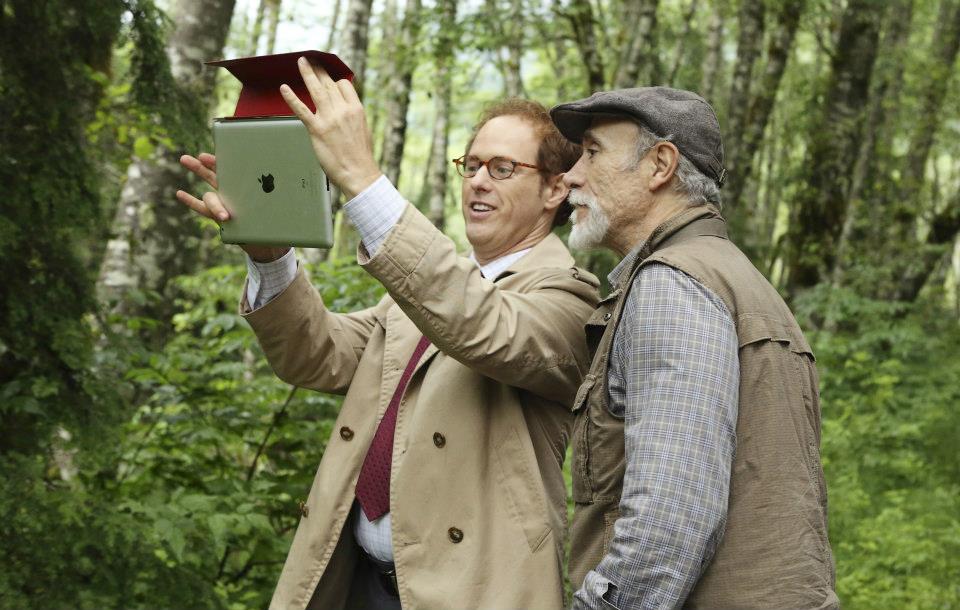
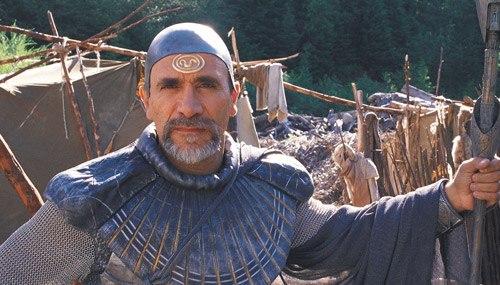
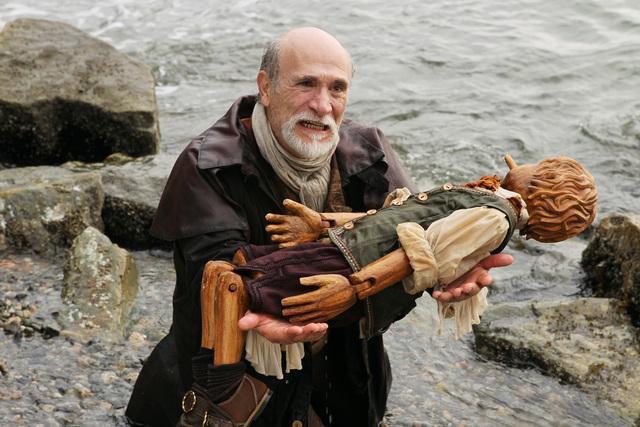
 RSS Feed
RSS Feed
